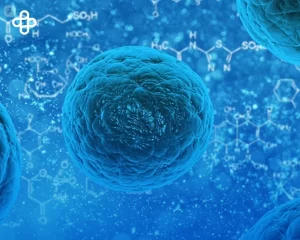Stem Cells for Pneumonia. In the last 2 years, significant progress has been made in studying how to treat patients with pneumonia, primarily based on studies to mitigate pneumonia caused by COVID-19.
Some recent studies can provide insights into the significant advancements made in the treatment of pneumonia and other respiratory conditions.
University of Granada
The University of Granada and the Virgen de las Nieves Hospital in Spain conducted research with experimental models. They suggested using radiation-activated mesenchymal stem cells for treating septic shock and pneumonia caused by the coronavirus.
Hospitals in Jakarta
Four hospitals in Jakarta, Indonesia, conducted a clinical trial. This was the first trial treating intubated and severely ill patients with COVID-19-induced pneumonia. They used a naive or non-genetically manipulated form of stem cells.
The 40 patients participating in the double-blind, controlled, randomized study were adults in intensive care who had been intubated due to COVID-19-induced pneumonia.
Half of them received intravenous infusions containing umbilical cord-derived mesenchymal stromal cells, or stem cells derived from the connective tissue of the umbilical cord. While the other half received infusions without them.
“The survival rate of those who received stem cells was 2.5 times higher and increased even further (4.5 times) in COVID-19 patients with other chronic conditions.” Explained Ismail Hadisoebroto Dilogo, one of the researchers, and a professor of Medicine at the Cipto Mangunkusumo Central Hospital-Universitas Indonesia.
Infectious Disease Specialists at the Virgen del Rocío University Hospital in Spain have initiated a project using stem cells from adipose tissue to evaluate their anti-inflammatory effect against pneumonia caused by COVID-19.
University of California, San Francisco
A study uncovers a unique stem cell pathway in lungs damaged by COVID and pulmonary fibrosis.
This research discovered a unique stem cell pathway in damaged lungs, caused by diseases like COVID-19 or pulmonary fibrosis. These diseases trigger abnormal stem cell repair that alters lung architecture.
The study was published in the journal ‘Nature Cell Biology,’ led by researchers from the University of California, San Francisco (UCSF). They used organoid models of stem cells to discover this new pathway.

Clinica Universidad de Navarra
A multicenter study led by the Clínica Universidad de Navarra, along with the Jiménez Díaz Foundation, the University Hospital of Salamanca, and the Gregorio Marañón University General Hospital. Research has shown that cellular therapy using stem cells from adipose tissue improves the prognosis of critical patients.
To illustrate this, researchers published the study in EClinicalMedicine, a journal of The Lancet group.
Only the four aforementioned centers treated the patients included in this research. The study evaluated the tolerability and safety of administering adipose-derived mesenchymal stem cells to patients.
“Mesenchymal stem cells, known as multipotent cells, can differentiate into various cell types while maintaining a high capacity for renewal,” explained representatives from the Clínica Universidad de Navarra.
Stem Cells for Pneumonia Adipose tissue-derived stem cells (adipocytes) have anti-inflammatory and immunomodulatory effects, are easily accessible, and can expand greatly over long periods without losing their characteristics.
With this purpose in mind, “Regulatory authorities have already approved advanced therapy using mesenchymal stem cells for certain inflammatory diseases. Additionally, there is preclinical evidence that intravenous administration of this cellular therapy in respiratory infection models caused by viruses reduces lung damage.”
Conclusion
Without a doubt, researchers have initiated numerous studies with stem cells in patients with pneumonia. These studies propose the use of various sources of stem cells, such as bone marrow, fat, or placenta.
To conclude, we firmly believe that these studies are highly relevant for showcasing the advantages of utilizing stem cells.
To emphasize delving deeper into the knowledge of stem cells, we invite you to read our article “What Are Stem Cells?“





